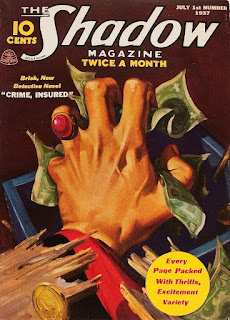I still defend his work to these philistines, though, at least his earlier books. You see, I've come to realize that there are three epochs in the career of the King. There's early King (1974-1978), books that were mostly written before, but published after, he found success. All of those are great (including The Long Walk, Carrie, Salem's Lot). There's post-success King (1979-1987), books that were written and published after his breakout success with the movie adaptation of Carrie (1976). These include the much overrated The Shining, the masterpiece that is The Stand, the haunting The Dead Zone, the middling Firestarter, the awful Christine, the terrific Pet Sematary, and the masterwork that is Misery. And, lastly, there is post-fame King, books published after he became a household name all over the world (1988-Present). This period is the most problematic of all. It includes good books (Duma Key, The Colorado Kid), ok books (Cell), and books that are just terrible (the bland Mr. Mercedes, and the almost unreadable The Institute).
Which brings me to good, old, Night Shift (1978), King's very first short story collection, and a true box of wonders. In Night Shift, King showcases all his strengths, weaknesses, styles, and obsessions. From the blood and thunder Gothic horror of the opener, "Jerusalem's Lot" (a prequel to the novel Salem's Lot), to the pulpy, overheated, but terrifically entertaining horror of "Graveyard Shift" (about giant rats and exploited workers) and "The Mangler" (a truly ridiculous story about a killer laundry machine), to the forgettable but atmospheric prequel to The Stand, "Night Surf".
There are also a handful of truly original and masterfully told tales of terror and suspense. Like the disturbing "I Am The Doorway", about a man who may or may not be possessed by an alien force that just wants to kill for pleasure; "Strawberry Spring", about a man who violently kills college students in a fogbound campus; the Hitchcock Presents homage that is "The Ledge"; and "One For The Road", a terrifying and somber sequel to Salem's Lot.
But the standout is "The Last Rung on The Ladder", a heart-wrenching tale of innocence, love, and loss, about the toll time takes on the bond between a brother and a sister, and the vows they made to each other as children only to abandon them as adults. This story is a wonderfully written piece of literature, and, arguably, was the first indication that King had the ability to write masterfully in any genre, and so is a precursor to such beloved classics like the novellas "The Body" and "Rita Hayworth and The Shawshank Redemption", both featured in the collection Different Seasons.
So, if you find yourself disappointed with King's uneven output in the past two decades, travel back in time and pick up a copy of Night Shift. It features a number of duds, but it also has some stories that will chill your bones and warm your heart, and remind you that there once was a king named King.
Text © Ahmed Khalifa. 2021.
Ahmed Khalifa is a filmmaker and novelist. He is the writer/director of several short films and a feature, which was released on Netflix, and the author of a number of novels and short stories, including the YA horror novel, Beware The Stranger, available on Amazon. Find him on Twitter @AFKhalifa and on Facebook @Dark.Fantastic.AK·Writer









